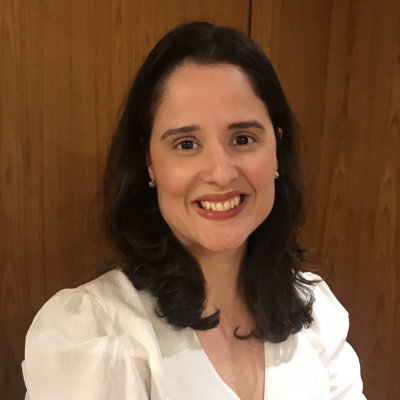
Lara Monteiro
Chief Financial Officer, Echo EnergiaWith a background in economics and banking, Lara Monteiro is now Chief Financial Officer of Brazilian renewable energy business Echo Energia, where she is responsible for the company’s finances while also helping to set the strategy. We talked to her about her experience of climbing the career ladder and of how companies can create a level playing field for all employees.
Why did you decide to go into finance?
“I’ve always been interested in economics – this was the case even before college – and I knew that banking was an important mechanism in value creation. After studying for my economics degree, I did an internship in banking that then led to a tenyear career in the sector. I really enjoyed learning about the financial system and areas such as the criteria for lending.
But I always like learning new things and facing new challenges, so I decided to set up a consultancy to provide independent advice to businesses using the knowledge I had built up. Then came the offer from Echo Energia, where I’d been engaged as a consultant – it was an opportunity to develop my skills in a corporate environment and to help build a new business.
My role here really draws on my interest in finance – I am responsible for the company’s debt cycle and structuring. That’s quite a complex task because much of our debt comes from development banks and their terms tend to be quite different from those of commercial banks. I am also part of the team that creates and sets the strategy for the business – I really enjoy that part of the role.”
What drives you?
“I’m always looking for opportunities for self-development and for ways of learning new things or a new way of doing business. That’s why I went from banking, to consultancy to the corporate world – it’s given me a rounded view of finance. I seek out challenges because that helps me become a better, more competent professional.”
Finance can be a male-dominated industry. What challenges do you think women often encounter in the sector?
“It is male-dominated, certainly here in Brazil. When I did my university degree, there were only 10 female students on my course. I was not put off by that, though. I just did my best to gain recognition by delivering results.
Yet one of things that I have learned is that you have to be open about potential bias. If I felt that there were opportunities not open to me because of bias, I have made sure to talk about it. I have found that being open and honest in my discussions, combined with focusing on delivering results, has helped open up opportunities through my career.”
Did you have a role model?
“I didn’t because there are very few examples of successful women in finance in Brazil. The absence of such role models can make it hard to see what’s possible. However, the moment in my career where I really missed having a role model, or even some kind of frame of reference, was when I was pregnant. It was really hard to find an example of a successful woman who hadn’t faced major issues and I couldn’t find any men/fathers who were willing to discuss their views on how to manage a career and a family.”
So how should companies support women with families?
“I think you need to look at the issue more from a family perspective – it’s not just women who are affected by having a family. Fathers should be able to be present for their children. That means that when you create an environment that addresses issues for women with families, it should help men too. It’s an equality issue and we need to have a work-life balance for everyone, not just women.”
How can opportunities be levelled up for women, particularly when it comes to senior positions?
“I think organisations have to address this issue directly. They need first to understand why they may not be attracting female candidates in their recruitment processes and then put energy into making sure female candidates are put forward for roles. It’s what we’ve done at Echo Energia – we always ensure there are female names on our recruitment shortlists.
But it’s also about creating an environment where people can thrive, regardless of gender. There needs to be space for people to talk about issues or challenges. Companies need to help employees understand bias and where it might exist, encouraging and supporting them to talk about it openly. Again, this is something we do at Echo Energia – we are very open to these kinds of discussions. I really believe that conversations can start things moving even if the environment in which you work is not totally open – you should never feel you have to suffer in silence.”
What would you have liked to have known before you embarked on your career?
“I wish someone had helped me develop a more direct and strategic way of communicating. I’ve found that, in my industry, communication tends to be quite straight and to the point and I haven’t always been comfortable with that. To get ahead, you really have to understand your audience and the environment in which you operate and getting to grips with this was a real game-changer for me.”